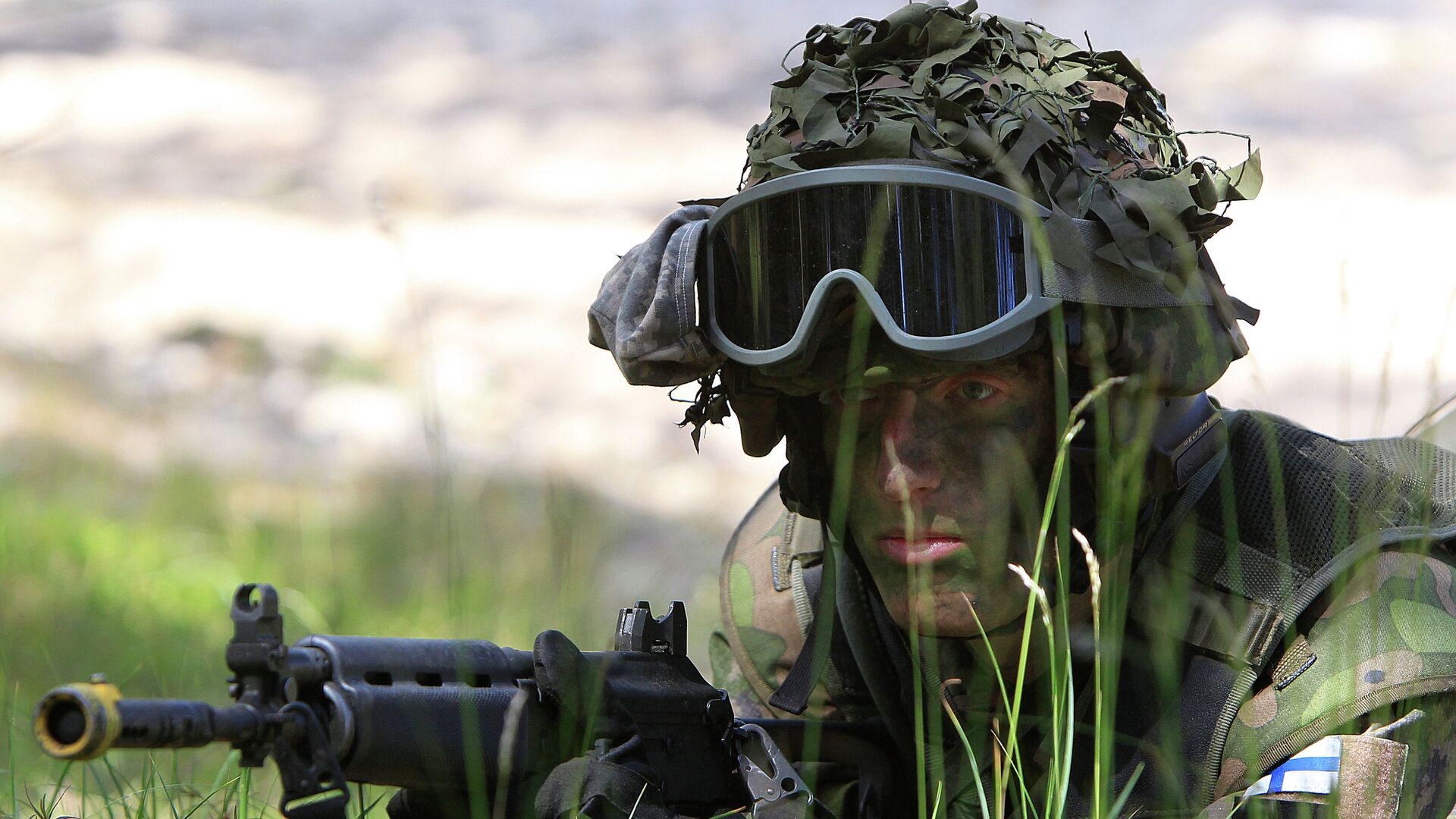NATO Boss Says Door for Finnish Membership Open as Polls Register Spike in Animosity Toward Russia
05:30 GMT 26.10.2021 (Updated: 05:36 GMT 26.10.2021)

© AP Photo / Czarek Sokolowski
Subscribe
Only a third of Finnish respondents have a positive opinion of Russia, compared with 63 percent nine years ago. Furthermore, nearly 60 percent of respondents consider Russia as a military threat. This coincides with the lowest point in the Russia-NATO relationship since the end of the Cold War, according to the alliance's secretary general.
During his two-day visit to Finland, NATO Secretary General Jens Stoltenberg said the door remained open for Finland to join the military alliance.
“Finland is one of NATO's closest partners and we very much appreciate the fact that we have been able to strengthen this partnership over the last years”, Stoltenberg said, as quoted by Finnish national broadcaster Yle. “I assume that this partnership will be one of the most important priorities in the strategy. It is about NATO's presence in the Baltic Sea and the Baltic states. The role of Finland and Sweden is incredibly important. [...] I assume that the door to NATO is kept open”, Stoltenberg said.
Furthermore, Stoltenberg called Finland a “close partner”, citing interoperability and major exercises and lauding Finland's “sturdy defence” that is “important for common security”.
“But of course there is a difference between being a member and not being a member, Stoltenberg stressed.
President Sauli Niinistö has previously stated that Finland joining NATO is a possibility, and noted during a press conference that relations between the Nordic nation and NATO have “continued to develop in recent years”.
“We have a lot of common understandings about how we can guarantee the most important thing in ordinary people's lives, that is peace”, Niinistö said.
This is also the first time that members of the North Atlantic Council, NATO's principal political decision-making body, have visited Finland in an official capacity. The visit happened at a time NATO-Russia ties are at their nadir since the end of the Cold War, the secretary general noted.
Earlier this month that NATO expelled eight members of Russia's mission to the alliance, labelling them “undeclared intelligence officers”. In response, Russia announced that it would close its NATO mission in Brussels and withdraw diplomatic accreditation from NATO's Moscow offices.
Earlier this month that NATO expelled eight members of Russia's mission to the alliance, labelling them “undeclared intelligence officers”. In response, Russia announced that it would close its NATO mission in Brussels and withdraw diplomatic accreditation from NATO's Moscow offices.
At the same time, however, Stoltenberg emphasised that NATO believes in dialogue.
“We must reduce tensions, especially with Russia. Finland has the opportunity to have a meaningful dialogue with Russia and it can also benefit NATO”, Stoltenberg said.
According to the Finnish Foreign Policy Institute, defence cooperation has become “the most important driver of Finnish external affairs”. The body noted an “ever-more extensive cooperation binding Finland to the Western security system” and stressed that “the waning of Finnish military non-alignment has further accelerated”.
Earlier, Russian Ambassador to Finland Pavel Kuznetsov lamented the fact that some countries “have to be afraid of Russia”. At the same time, the ambassador underscored that the advance of NATO's military infrastructure closer to the Russian borders will force Moscow to take appropriate measures.
Meanwhile, a recent poll held by market research firm Taloustutkimus on behalf of the Finnish think tank Eva, the Finnish Business and Policy Forum, indicated a growing animosity toward Russia. About a third of Finnish respondents had a positive opinion of Russia, whereas 45 percent held a negative opinion of the country.
By contrast, a similar survey in 2012 found that wholly 63 percent had positive attitudes and just 19 percent had negative attitudes towards Russia, which means that the favourable attitudes had fallen by around 30 percent and negative attitudes grown by 26 percent in a matter of nine years, Yle reported.
Furthermore, nearly 60 percent of respondents considered Russia as a military threat. Negative attitudes towards Russia were more common among the younger respondents, which Eva's research manager Ilkka Haavisto interpreted as a sign of lasting change, whereas 65-year-olds were the most positive demographic.


